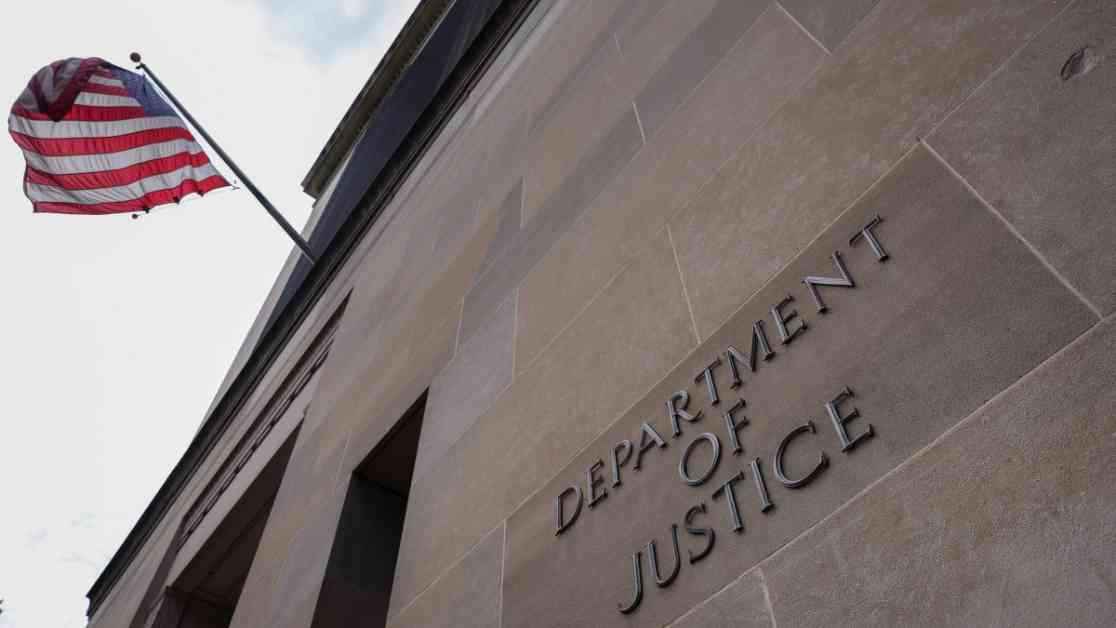Assistant U.S. Attorney Resigns in Protest Over Adams Corruption Case
In a shocking turn of events, Hagan Scotten, an assistant U.S. attorney working on the Eric Adams corruption case, tendered his resignation to the Department of Justice. This action follows the departure of Acting U.S. Attorney Danielle Sassoon, who was instructed by Deputy Acting Attorney General Emil Bove to drop the case against the New York mayor. The resignation, conveyed through a concise email, was shared with NBC New York and has sent ripples through legal and political circles.
Challenging Decision
Scotten’s resignation letter, addressed to Deputy Acting Attorney General Emil Bove, expressed his dissent over the decision to abandon the Adams case. He clarified that he was never given an opportunity to resist the dismissal, as he was never asked by Sassoon to do so. However, Scotten conceded his agreement with her choice, adding a layer of complexity to the unfolding drama. The email hinted at the internal strife and ethical dilemmas faced by legal professionals tasked with delivering justice.
Bove, in an official communique to Sassoon, announced the administrative leave of Scotten and another assistant U.S. attorney involved in the case. This move underlines the gravity of the situation and the potential ramifications of the clash between legal obligations and political pressures. The Justice Department’s intervention highlights the systemic challenges faced by prosecutors seeking to uphold the law in the face of external influence.
Legal Turmoil
The unprecedented directive to halt the corruption case against Mayor Adams came from Emil Bove, the second-highest-ranking official at the Justice Department, acting under the purview of recently appointed Attorney General Pam Bondi. Bove’s rationale for dropping the charges, citing concerns about their impact on Adams’ law enforcement efforts, further muddied the waters of justice and politics. The ongoing legal battle underscores the precarious balance between legal procedures and political expediency.
In a separate correspondence addressed to Attorney General Bondi, Sassoon recounted a contentious meeting with Adams’ lawyers in January. Allegations of a “quid pro quo” emerged during the discussions, suggesting an inappropriate link between the case’s dismissal and the mayor’s cooperation with federal enforcement priorities. The conflicting narratives presented by Sassoon and Adams’ attorney, Alex Spiro, underscore the complexity of legal negotiations in high-stakes cases.
Scotten’s resignation letter poignantly captures the internal struggle faced by prosecutors navigating the intersection of law and politics. His principled stance against leveraging legal authority for political gain sheds light on the ethical dilemmas confronting legal professionals in today’s charged environment. The refusal of key Justice Department officials to drop the case underscores the depth of the legal community’s commitment to upholding the rule of law.
The escalating discord surrounding the Adams corruption case has led to the resignations of several high-ranking Justice Department officials, further complicating an already contentious legal battle. The standoff between the Southern District of New York and the Justice Department underscores the challenges of maintaining judicial integrity in the face of external pressures. President Donald Trump’s denial of involvement in the dismissal decision adds another layer of intrigue to a case that continues to captivate the nation.
As the Justice Department assumes control of the Adams case, the legal community braces for further developments in this high-profile corruption saga. The resignation of key officials and the internal turmoil within the Justice Department serve as a stark reminder of the delicate balance between legal autonomy and political influence. The implications of this case extend far beyond the courtroom, resonating with broader questions about justice, accountability, and the rule of law.


